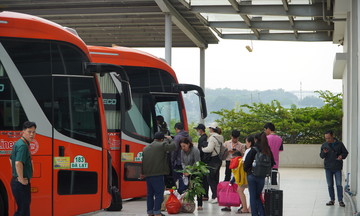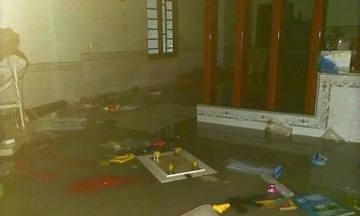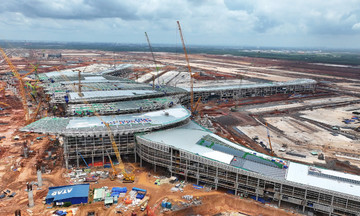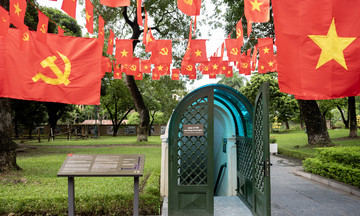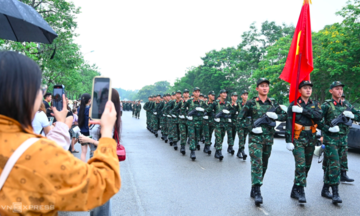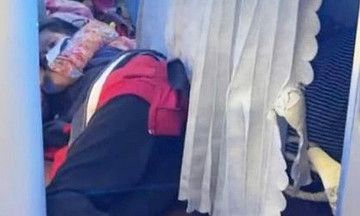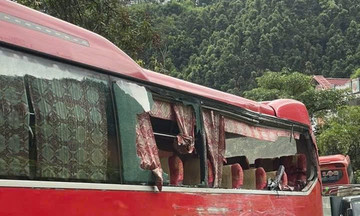According to the Department of Construction, the management and collection of fees for the temporary use of sidewalks and roadways for business and trading have been suspended. This is because, from the beginning of 2025, the Law on Roads and the Law on Road Traffic Order and Safety came into effect, which do not allow provincial People's Committees to issue separate regulations on the use of sidewalks for business purposes. The city is reviewing and adjusting policies to comply with the new legal framework.
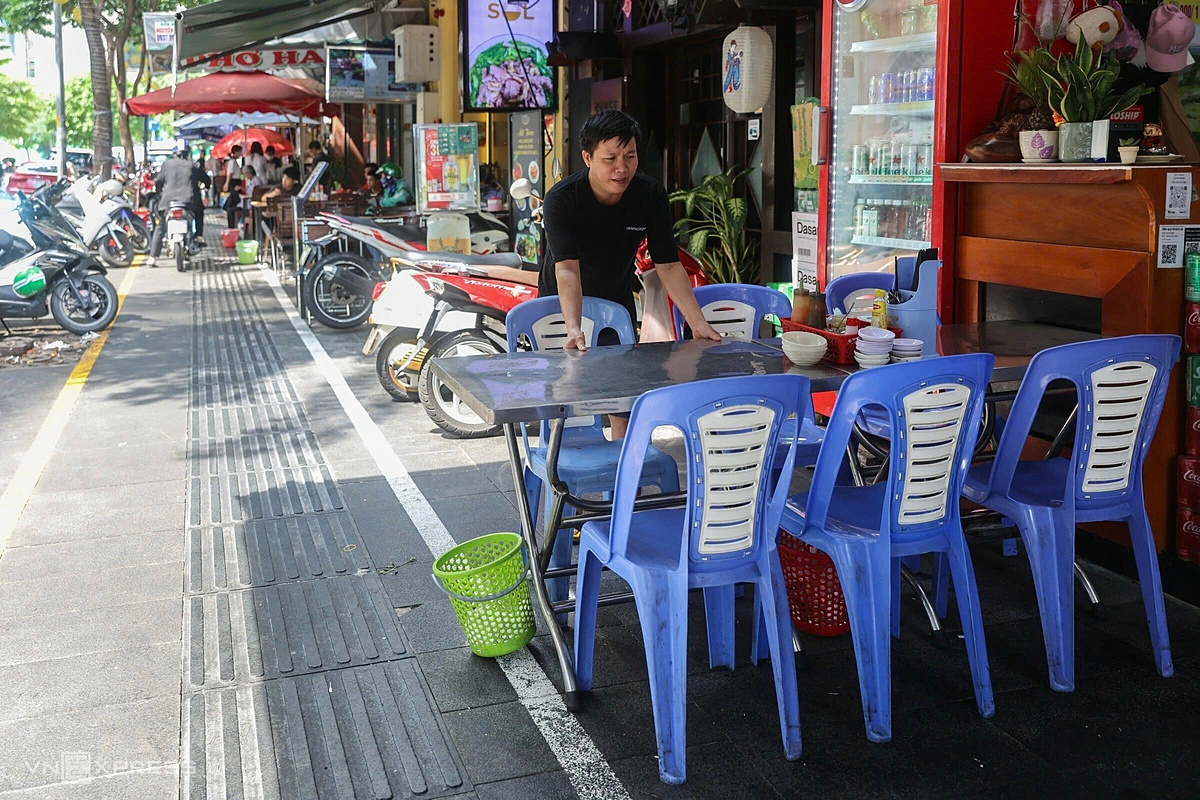 |
People on Hai Trieu Street, District 1 (former) arrange tables and chairs according to the painted lines on the sidewalk after registering for use, 2024. Photo: Thanh Tung |
People on Hai Trieu Street, District 1 (former) arrange tables and chairs according to the painted lines on the sidewalk after registering for use, 2024. Photo: Thanh Tung
Previously, under Decision 32 issued in 7/2023, Ho Chi Minh City allowed some activities to temporarily use sidewalks with fees, applied from the beginning of this year. In over a year of implementation, the city collected about 7 billion VND from cultural activities, public utility arrangements, and trading.
This policy has been assessed as contributing to restoring urban order, allowing people to register for legal sidewalk use. However, the implementation process lacked synchronization, and some places still experienced encroachment, causing public frustration about transparency and fairness.
Currently, Ho Chi Minh City has temporarily stopped issuing new business permits on sidewalks, only continuing to process cases that have been granted permits and are still valid. Activities such as parking, transporting materials, and waste are still being considered under the new regulations.
The Department of Construction said it is coordinating with the City Development Research Institute to develop a comprehensive sidewalk and roadway exploitation plan, to be applied uniformly after Ho Chi Minh City merges with Binh Duong and Ba Ria - Vung Tau. The plan is expected to be completed in 12 months. Once approved by the city, it will be piloted in some central wards before expanding citywide.
Giang Anh




